Alarming new research shows how LGBTI people are affected every day by inequality
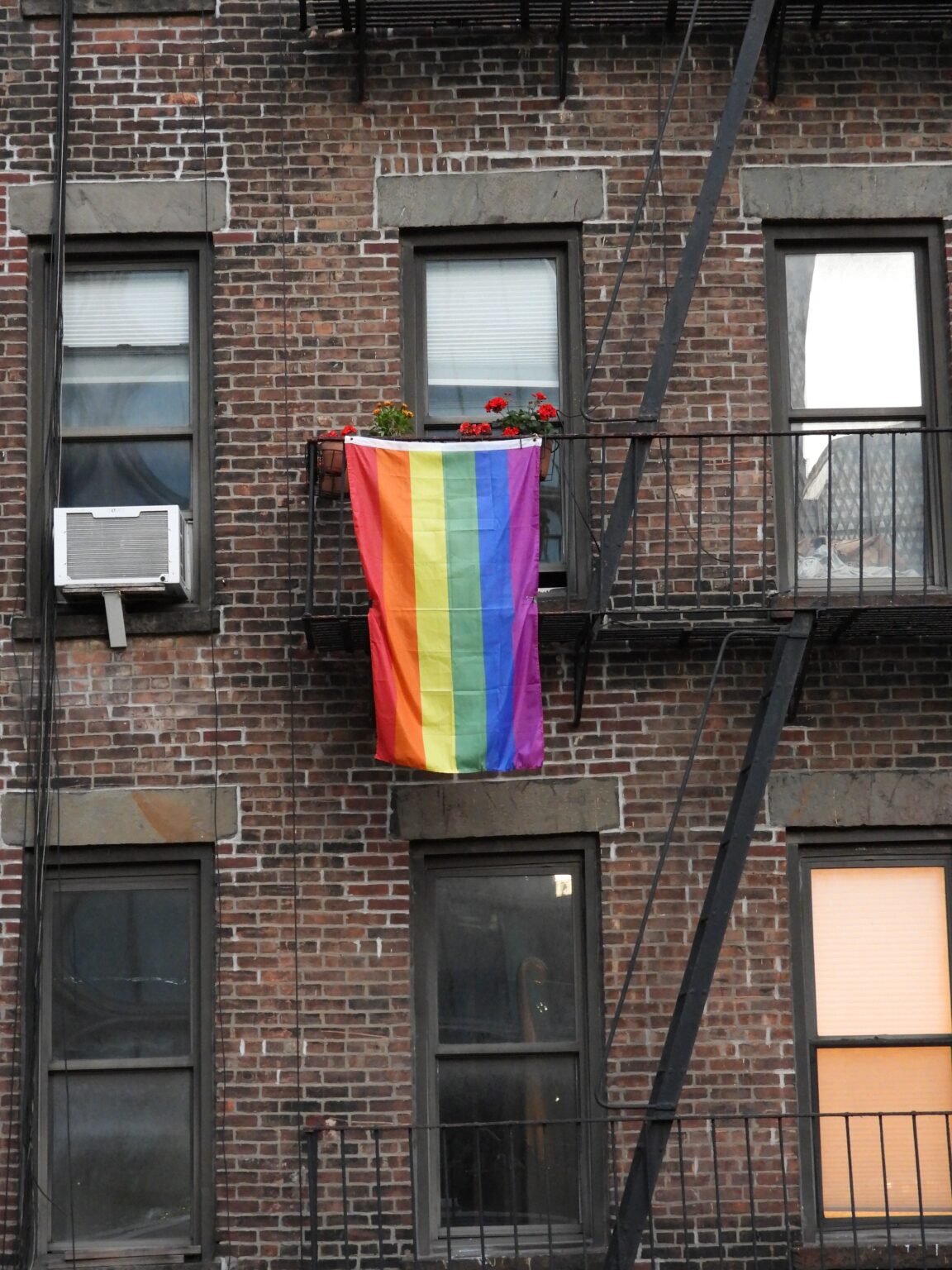
Recent data shows that LGBTI young people perceive the labour market with fear and that most of LGBTI youth living with their families have experienced violence in different parts of Europe. These are among the alarming facts related to the impact of inequality and oppression in LGBTI communities, as identified through ILGA-Europe’s No One Left Behind initiative.
We all may experience highs and lows along our working lives or struggle to find the apartment of our dreams, but chances are that LGBTI people will encounter greater obstacles when looking for job or a home. These are some of the conclusions from the research carried out by grantees of ILGA-Europe’s No One Left Behind fund.
The No One Left Behind fund supported projects addressing socio-economic barriers for LGBTI communities in Europe and Central Asia. Launched in 2020, after the breakout of the global COVID-19 pandemic, the program aimed to enable LGBTI groups and organisations to develop long-term responses to underlying causes of inequalities and oppression, which increase the vulnerability and marginalisation of LGBTI people, especially in times of crisis.
Thanks to No One Left Behind, a number of organisations in Europe and Central Asia mapped the ways in which social and economic inequalities affect the livelihoods of LGBTI people, in particular when these are aggravated by a crisis such as the COVID-19 pandemic. However, these conclusions are only the tip of the iceberg, as there is a real gap in data. Even if comprehensive research is lacking, available evidence already points to the urgency of collecting more information and, above all, taking more action to address the inequalities LGBTI people experience.
Based on the No One Left Behind research, here is a glimpse of the current lived realities of LGBTI people in different parts of Europe:
Access to Employment
? Public officers in access to employment institutions are unaware or not prepared to provide services for LGBT people, and in some cases are homophobic (Kosovo).
? There are high rates of unemployment among marginalised groups such as Roma LGBT people (Serbia).
? LGBTI young people perceive the labour market with fear. Often, they have grown up in homophobic or transphobic families who do not accept them. Schooling experiences are marked with homophobia and transphobia (Romania).
? 25% of interviewed LGBTI youth say that in the absence of a workplace they no longer have money for basic needs, including medical services (Romania).
Safe housing
? On-and-off homelessness is prevalent among surveyed LGBT refugees. Some interviewees reported to sleep at friends’ and changing their location every two days in order to avoid bigger shelters, because of their fear of discrimination (Austria).
? Duration of homelessness among LGBT refugees is typically six to ten months (Austria).
? More than half LGBT youth aged 16 to 29 interviewed live at their family’s home and the majority have experienced some kind of violence (Slovenia).
? 78% of interviewed LGBT youth aged 16 to 29 do not understand their situation as inadequate, although they fit the criteria for inadequate housing (Slovenia).
Trans
? Trans sex workers communities are harshly impacted by violence, exclusion and suicidal ideation (Greece).
? Up to 18 out of 50 trans people surveyed were required to remove their internal genital organs. This was evaluated as very problematic. To require this intervention also prevented persons who wished to transition from doing so (Slovakia).
? Trans people often face issues in their transition due to the lack of preparation of authorities (Slovakia).
LGBT refugees
? The main obstacles encountered by LGBT refugees when seeking support are language barriers and discrimination (Austria).
? 20% of interviewed LGBT refugees receive social benefits. 80% receive support only from individuals from the LGBTIQ community (Austria).
? 95,1% of interviewed LGBT asylum seekers feel depressed and have trouble sleeping. 87% feel anxiety on a regular basis and 41,5% are hopeless about their future (Greece).
? 41% of interviewed LGBT asylum seekers have stated that they have engaged in sexual actions in exchange for food, housing and/or money (Greece).
Say Their Names: The trans and gender diverse people whose murders were reported in Europe and Central Asia last year
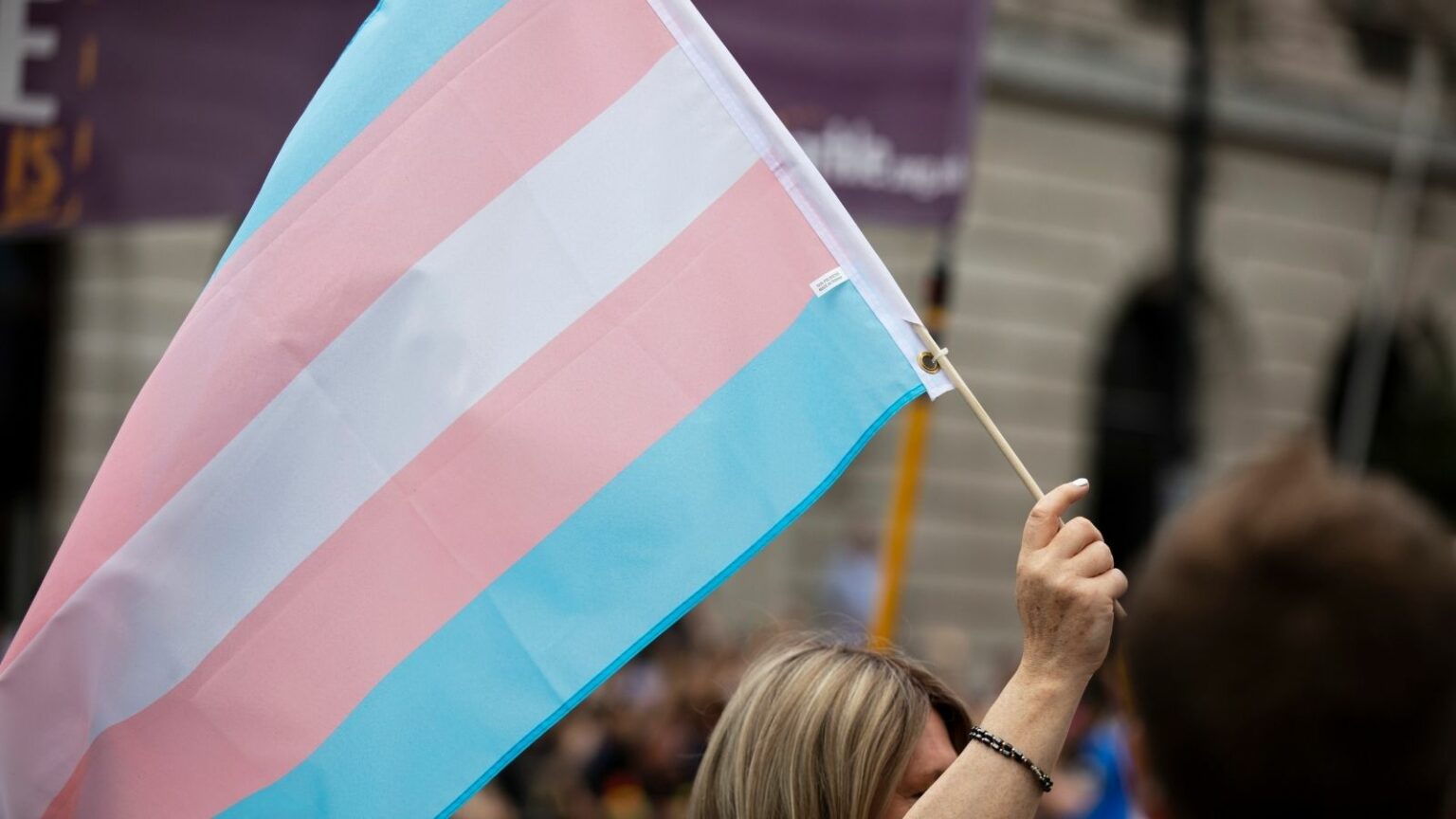
The murders of 375 trans and gender-diverse people were reported between October 2020 and September 2021, according to the latest Trans Murder Monitoring (TMM) update, and 2021 is set to be the deadliest year for trans communities since TGEU began collecting data. We say the names of those whose lives were cut short in our region, with a view towards a world where all trans people can live in equality, freedom and peace.
Violence against trans people is a continually growing issue that’s reaching record levels. This year, TGEU has accounted the highest number of trans and gender-diverse people whose lives have been cut short since the organisation began to collect data in 2008. The murders of 375 trans and gender-diverse people have been reported in the past 12 months, 7% more than in 2020, which was already a 6% increase from the previous update.
14 of the murders took place in Europe and one in Kazakhstan. 43% of the trans people killed in the region were migrants. Worldwide, Brazil remains the deadliest country of all. Other global facts include:
- 96% of those murdered globally were trans women or transfeminine people
- 58% of murdered trans people whose occupation is known were sex workers
- 36% of the murders took place on the street and 24% in their own place of residence
- The average age of those murdered is 30 years old; the youngest being 13 years old and the oldest 68 years old
These numbers are just a glimpse into the actual scenario, as most cases are not reported and those which are recorded receive little attention. TGEU warns of a “worrying trend when it comes to the intersections of misogyny, racism, xenophobia, and hate towards sex workers, with the majority of victims being Black and migrant trans women of colour, and trans sex workers”.
Say their names
Trans Day of Remembrance is marked each November 20 to commemorate trans people whose lives were lost as a result of anti-trans violence. It is important not to forget that behind the numbers there were actual individuals who had families, friends, a history and a future. To honour their memories, TGEU has also collected their names and how they died. Here you will find a list of those whose lives were brutally and needlessly cut short in Europe and Central Asia after transphobic attacks.
- Nuray Nuriyev, 27 years old. Baku, Azerbaijan
- Paula Migeon, 50 years old. Reims, France
- Ambre Audrey Istier, 50 years old. Isère, France
- Ivanna Angeline Macedo, 28 years old. Paris, France
- Dimitra Kalogiannis, 64 years old. Athens, Greece
- N.N., 30 years old. Piacenza, Italy
- Adrieli. Rome, Italy
- Dzhakonda. Nur-Sultan, Kazakhstan
- Angelita Seixas Alves Correia, 31 years old. Matosinhos, Portugal.
- Viktoria (Vika) Basakovskaya, 23 years old. Novosibirsk region, Russia
- Iratxe Otero, 29 years old. Santa Cruz de Tenerife, Spain.
- Selin Aynaci, 42 years old, Antalya, Turkey.
- Mira? Güne?, 36 years old. Izmir, Turkey
- Pamela ‘Pam’. Turkey
- Kadir Murat Sözübir, 42 years old. Fatih, Turkey
These names, these lives and those of the 360 other trans and gender-diverse people whose murders were reported, and all of those who have gone un-reported, are a stark reminder of why continually mounting violence against trans people needs to be condemned by policymakers, civil society, and society at large in the strongest possible terms. We join in mourning the lives lost and commit to continuing to fight for the world we want to see, where all trans and gender-diverse people live full and equal lives in freedom and in peace.
How trans parents are better protected after European Court ruling
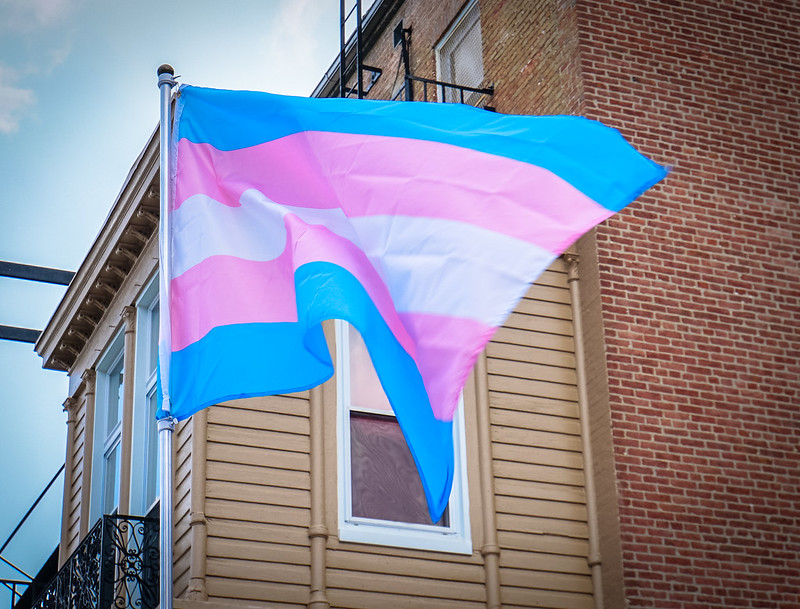
Recently, the European Court of Human Rights ruled in favour of a trans woman in Russia who was denied access to her children because of her gender identity and transition. Read on to find out how this may benefit all trans and LGBTI parents in Europe.
For four long years, A.M. did not see her own children. This was not her decision. She was denied her right to love, care for and nurture the bond with her children because of her gender identity and her transition, after her ex-spouse obtained a court order. Now, the European Court of Human Rights has ruled in her favour in a landmark judgment. This is the first time the court has found a violation of the prohibition of discrimination (Article 14) because of a person’s gender identity. It also found a violation of the applicant’s right to private and family life (Article 8).
A.M., the applicant in the case, is the parent of two children born in 2009 and 2012. After seven years of marriage, in 2015 she separated from her wife and began her legal gender recognition process to live in the gender she identifies with. She continued to see her children for over a year, until a district order obtained by her ex-partner cut off visitation in 2017.
The Russian courts argued that the decision to restrict the applicant’s parental rights was necessary, as contact with the trans parent would have a “negative impact on the mental health and psychological development” of her children. It also claimed that visitation could violate so-called propaganda law, which bans public statements in relation to LGBTI people in Russia.
However, the European Court of Human Rights noted that the domestic courts made their decision “in the absence of any demonstrable harm to the children,” failing to demonstrate that the restriction was justified and well-substantiated. Notably, the court found that the applicant had been discriminated based on her gender identity in comparison to other cis parents, saying that she has been “treated differently from other parents who also seek contact with their estranged children, but whose gender identity matches their sex assigned at birth.” It also added that depriving A.M. of any contact with her children could “have irremediable consequences for relations between the child and the parent with whom that child does not live.”
The court awarded the applicant €9,800, even though she had not asked for pecuniary compensation, concluding that “such damage cannot be compensated for solely by the finding of a violation.”
Every fourth trans person in Europe is a parent and this judgement gives legal security to many of them. Now it has been confirmed that discrimination based on gender identity, prohibited under the European Convention, applies in parental rights cases. If you are a good parent, that’s what matters, irrespective of your gender identity
From a children’s rights perspective, when someone tries to limit parental rights for trans and LGBTI parents more broadly, the main argument used is that it is has detrimental effect on children. In other words: they say children would suffer because of their parent’s gender identity. The court has made clear that it is in the best interest of the child to have a loving parent and that to restrict visitation just because a parent is trans is not a good enough reason.
The European Court of Human Rights is the court of law of the Council of Europe, of which Russia is a member. Judgments of the European Court of Human Rights are binding on all Council of Europe Member States; however, Russia has ignored the rulings several times. In 2020, draft amendments to the Russian Family Code would have seriously negatively affected legal gender recognition procedures. In November these amendments were withdrawn.
“We call upon the Russian authorities to respect the court’s decision and immediately end the discrimination of trans families,” said ILGA-Europe’s Executive Director, Evelyne Paradis.
LGBTI organisations welcome European Court judgement in favour of trans parental rights in Russia

Today, in a landmark judgement strongly welcomed by TGEU and ILGA-Europe, the European Court of Human Rights has ruled in favour of a woman in Russia who was denied access to her children because of her gender identity and transition.
Today, in the case of A.M. and Others v. Russia, the European Court of Human Rights unanimously found a violation of Article 8 (right to private and family life) and Article 14 (prohibition of discrimination).
The case concerns a trans woman from Moscow who was prevented from having contact with her children because of her gender identity and transition. The Court found that the domestic courts did not sufficiently take into account the best interest of the child when restricting the applicant’s parental rights, and observed that, contrary to the established practice, they failed to conduct a comprehensive assessment and scrutiny to evaluate a potential danger to the children’s wellbeing.
The Russian courts argued that the decision to restrict the applicant’s parental rights was necessary, as contact with the trans parent would have a “negative impact on the mental health and psychological development” of her children. The European Court however noted that the domestic courts failed to demonstrate that the restriction was justified and well-substantiated.
Reacting to the judgement, Executive Director of TGEU, Masen Davis said: “The kids are alright – there is nothing wrong with being a trans parent! Today, we celebrate this important message together with all trans families. Every fourth trans person in Europe is a parent. Today’s judgement gives legal security to many of them. We congratulate the applicant for having gone all the way to Strasbourg to defend her right to be the best possible parent to her children.”
Evelyne Paradis, Executive Director of ILGA-Europe added: “Too often we are hearing the best interest of the child being abused as an argument to limit the rights of LGBTI people. We are glad to see the Court clearly rejecting such an abusive argument, and instead naming very concrete responsibilities for state authorities in ensuring the best interest of the child. Spreading hatred, misinformation and splitting loving parents from their children is not in the best interest of children.”
This is the first time the European Court of Human Rights has found a violation of the prohibition of discrimination (Article 14) because of a person’s gender identity. Notably, the Court found that the applicant had been discriminated based on her gender identity in comparison to other cis parents, saying: “[the] applicant has… been treated differently from other parents who also seek contact with their estranged children, but whose gender identity matches their sex assigned at birth.”
The Court awarded the applicant €9,800, even though she had not asked for pecuniary compensation. The Court held that “such damage cannot be compensated for solely by the finding of a violation.”
TGEU and ILGA-Europe had submitted written comments to the case, which the Court took into consideration in its analysis. The comments presented information dispelling myths about trans parenthood, international developments recognising increased rights recognition and requirements for a “best interests of the child” standard.
“We call upon the Russian authorities to respect today’s decision and immediately end the discrimination of trans families,” Evelyne Paradis concluded.
Further information:
- Read more about Russia in our Rainbow Map and Annual Review.
For further comment, contact: Ana Muñoz Padrós, ILGA-Europe: ana@ilga-europe.org, +32 493 35 60 55
Rainbow Family Rights in Europe – Part 5: The Rights of Trans Parents and their Children
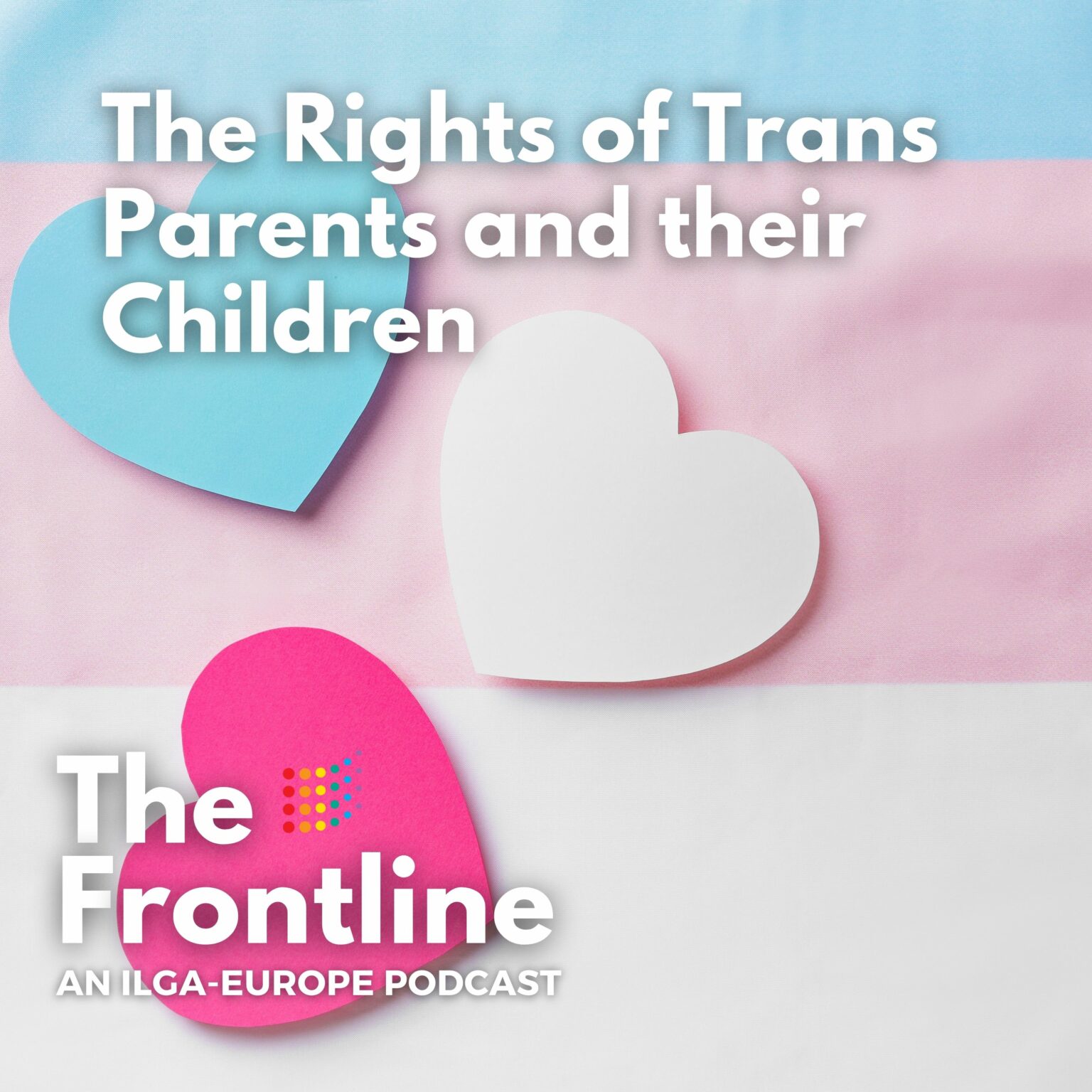
In March 2021, Transgender Europe (TGEU) published the report, “Stuck on the swing: experiences of trans parents with freedom of movement in the EU”, in which 18 trans parents from across Europe shared their stories and thoughts. The report found that trans parents and their families face serious barriers when it comes to moving safely and freely across the European Union.
In the fifth part of our mini-series on rainbow family rights, during which we we’re looking at the issues affecting LGBTI partners, parents and their children across Europe, we talk to Senior Policy Officer with TGEU, Richard Köhler, and Slovenian trans-activist, Lea Aymard, one of the parents featured in the report, about the current state of play and ways forward.
#TransDayofVisibility 2021: Ariadna’s story

“Hope is my keyword for the year.”
It’s an unusually sunny day in Pamplona, the north-eastern Spanish town famous for the San Fermines festivities where Ariadna Vigo currently lives.
For her, the city has more to it than its renowned bull fights. “Pamplona’s Old Quarter is one of the most progressive places in Spain,” she says. “This is something people don’t know.”
Ariadna is a trans lesbian activist who holds a PhD in linguistics. On our zoom call she wears her personality with ease, red lipstick, black thick eyeliner and two bracelets worn over the left sleeve of a grey swan neck sweater, give her an air of casual sophistication. Her local LGBTI movement may not be as well-known as that in Chueca, Madrid’s iconic LGBTI friendly district, but it’s a strong and bonded community. “We’re really connected and have a lot of fun, and we are fighting for a lot of things here. At the moment, we’re fighting against the public cut of funds of centre Harrotu, one of our queer spaces in Pamplona.” Harrotu, in Basque, means pride.
Having lived in many different places, Pamplona is where Ariadna finally feels at home. “I had to escape my home, although I am not the classic runaway” she says of her previous travels. “I know what that means. I know what it is to be personally affected by hate. It’s terrible.” Pamplona is a place where she can be her true self, although she never takes this for granted. “The LGBTIQ community is really really strong here, especially the lesbian community.”
Born in Buenos Aires, Argentina, her family moved first to Santiago, Chile and then to Spain. After almost a decade in Barcelona, she came back to Pamplona a year ago. Her parents live in the same town, but her family and she have not been able to rebuild their relationship back. “I wish things were different,” she says.
By mid-March 2021 the long-awaited trans law proposal, pushing towards self-determination, was submitted to the Spanish Congress. It has not been easy: just a few weeks earlier, arguments within the coalition government seemed to have blocked the proposal for good. Hundreds of trans activists and their relatives went on hunger strike in Madrid to protest this, until eventually the proposal was moved forward.
“I’m not sure if the bill will pass or not,” says Aridana, “but I think things will improve. I would like Spanish society to keep moving and keep advancing. There’s a lot of hope. Hope is my keyword for the year”.
However, in Spain the far-right is still on the rise, as well as numbers of trans exclusionary radical feminists (TERFs), and there hate speech, both in social media from public authorities on a daily basis. Despite this, Ariadna keeps her spirits high and doesn’t let fear in.
“If you are happy with your life, you don’t go bashing people around,” she says. However, she’s more concerned about the very present threat of physical violence in her everyday life. “It’s tiresome, maybe that’s the word for it.”
Ariadna believes in the power of language to make change. “Information for the LGBTIQ community here is well-intentioned but outdated,” she says. “Making English-language resources more accessible is one of my dreams, but it’s not a challenge I can take on by myself.”
Before coming out as trans and lesbian, Ariadna struggled for a long time with both her gender and her sexuality because she had no references, no mirrors. “Trans lesbian visibility is something that is really lacking. Eventually, I fully embraced that being trans is compatible with any sexual orientation and I started the journey of becoming my whole self. It’s my hope that that everyone will understand this soon too, especially among LGBTI communities. We are a minority within a minority.”
#TransDayofVisibility 2021: Shash’s story
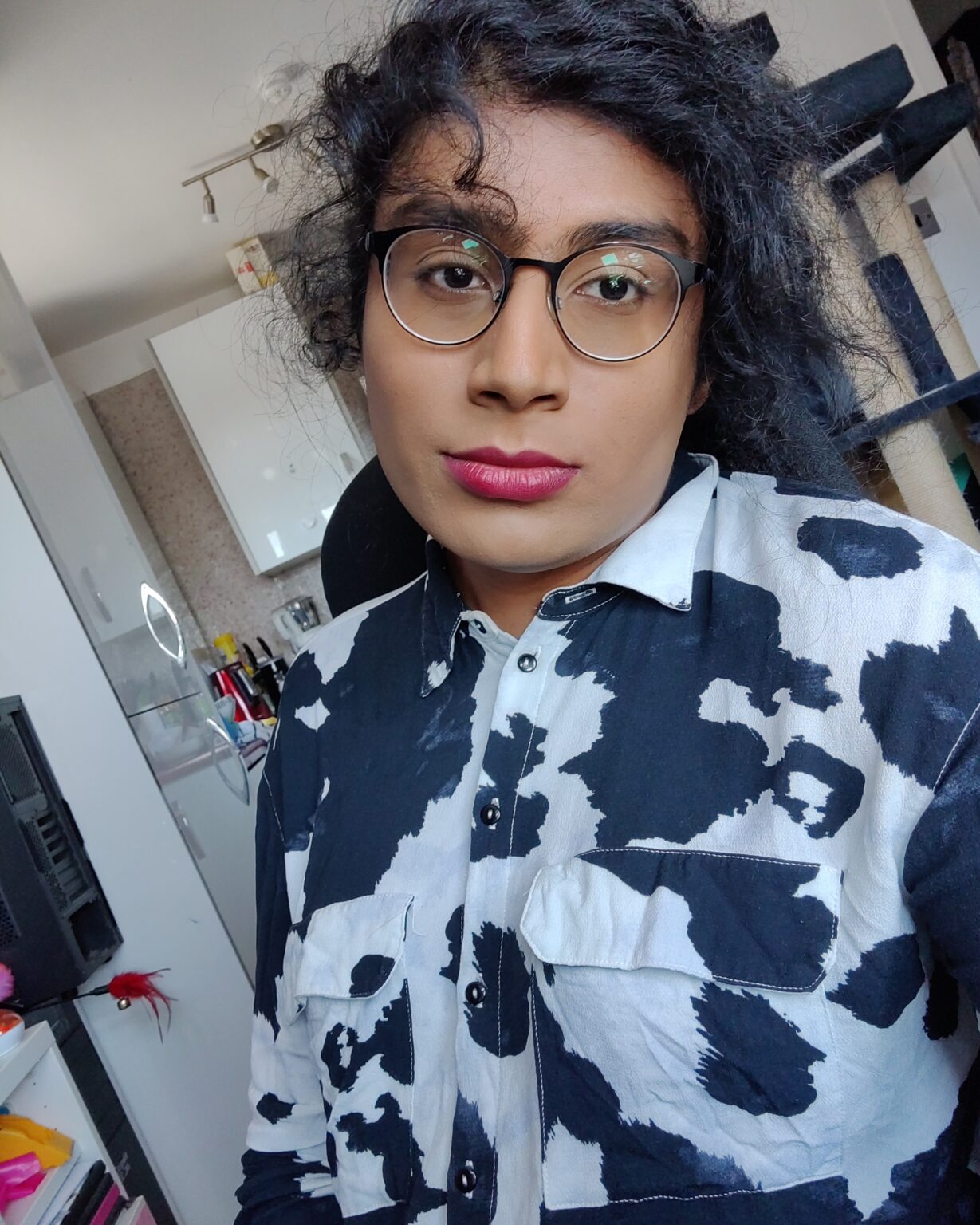
“There is so much strength found in solidarity, now more than ever.”
When Shash Appan was just 18 and living in the UK city of Birmingham, she came out to her family as trans. It didn’t go well. “It was a cataclysm of things going wrong,” she remembers. “As with a lot of queer kids at that age, my schooling was affected. All my plans to escape went up in the air because I was in such difficulty that couldn’t get the grades I needed to move on.”
Eventually, Shash was driven to attempting suicide. She was then sectioned by her parents. “My memory of this time is very hazy,” she says. “By the time I started coming back to myself, I was the duty-free lounge at Manchester Airport. My parents were sending me to India to stay with my grandparents.
“I wasn’t against it at the time. I like my grandparents, and I was depressed and sad, so I thought it would be nice to see them for two weeks. Those two weeks turned out to be two years of enforced social isolation, with no access to Internet or other communication. I was sent to a psychiatrist, essentially for conversion therapy.”
But Shash is nothing, if not resilient, and her brush with mortality and subsequent isolation made her want to live life on her own terms. “I kind of ground my grandparents down over the two years, and eventually they let me go back to the UK. They sent me with just the clothes I had on my back, and no phone or money. I think they wanted to make it as difficult as possible, so I would come back to India. I was allowed one phone call before I left, and I used it to get people I knew back in the UK to pick me up at the airport. I started living as my authentic self as soon as I could.”
A new life
Shash’s re-entry to living in Britain eventually led to a new life in the Welsh city of Cardiff. “I was homeless for a while and struggling to live, and then I got offered to study computer science at Cardiff Met University. I packed up what little I had, got on a bus, and I’ve been here since.”
As with many people who devote their lives to activism, Shash stumbled into it. “I did a work experience program and during that time was invited to be on a panel to talk about being trans,” she explains. “From then on, I started speaking at things and getting more involved in grassroots activism.
“I became an activist because of my ability to speak. It felt like a duty for me to use that ability. I didn’t choose to become an activist because it was lucrative, which it absolutely is not, nor for the notoriety. If anything, it’s brought me nothing but struggle. I’ve met some great people, don’t get me wrong, but sometimes it feels like things aren’t changing, no matter how much you do. I know so many people who take no time off, and they just burn out.”
Shash is a co-founder of Trans Aid Cymru, a mutual support service for trans people in Wales. “We initially came about after there was a leak in the Sunday Times saying that the UK gender recognition act reform (GRA) was going to be shelved. We were tired of the system failing us when we were trying to play by its rules. We’re trying to get people in government to listen to us, lobbying them and doing all things you are supposed to do. The only times when we would ever get sit at the table was if we threw the more marginalised among this under the bus, like non-binary people. So, it became a thing of, we need to support ourselves and we have skills within our community to do so. We decided we should start a mutual aid to provide support services for trans people.”
Trans Aid Cymru is a small organisation, with a massive responsibility. Many of the situations Shash and the other organisation members are called in to help with are urgent, and their capacity is limited. “At first, we were surprised that an organisation like ours didn’t exist already, because we kept finding we were so needed, but is also becoming apparent to us that it’s almost too much. We’ve had to be careful to not push ourselves too hard.”
It feels lonely
The atmosphere around trans issues in the UK is charged, to say the least, with vehement anti-trans rhetoric on social media every day, and regularly in the mainstream media, much of it coming from trans exclusionary radical feminists (TERFs), who argue that trans women are not women, and are taking over ‘real’ women’s spaces. If you are trans, it is not an easy atmosphere to live in.
“One of my biggest worries is getting attacked or targeted just for being me, and not because I’m an activist or anything like that,” Shash says. “I’m lucky to say that I’m quite cis passing now, which is to some degree a privilege in navigating the world. Still, even before the pandemic, I was struggling to leave the house and that’s largely due to the transphobic atmosphere. There’s not a weekend without one transphobic article in the mainstream press. I’m never free from something transphobic occurring. On top of that, because I’m brown as well, I’m also facing a degree of racism within our queer community, which is unfortunately mostly white. I live with a measure of ostracisation and microaggression, and it feels lonely a lot of the time.
“With anti-trans propaganda constantly out there, it’s hard to feel like you’re wanted by society. In fact, it feels like society is very actively trying to push me away. I’d like to say it’s not succeeding, but I know so many, myself included, who have shied away from like doing things in public. I used to enjoy going swimming so much, but to do that now is just too nerve-wracking.”
Luckily, Shash has a loving partner to support her, but this comes with an ironic twist. “She is a lesbian,” Shash explains. “With GRA reform being delayed and my birth certificate remaining unchanged, if we got married right now, I would be put down as her husband. So, while TERFs are saying that trans women are erasing lesbians, if we got married now, it would actually erase my partner’s lesbian identity.
History repeating itself
The attacks on trans people in many European countries bring up other times in history, when similar limiting of expression has taken place. “We’ve seen it time and time again,’ says Shash, “where laws are introduced and there is propaganda and a public atmosphere to the point where certain groups are villainised. It’s always the same kind of rhetoric. It’s not even like ‘we wouldn’t want them raising our kids’ or arguments like that. It’s much more nebulous. It’s more like ‘they do not have a place in our society’.
“In the 1980s it was gay people, and in the 20s and 30s it was Jewish people. It happens in other countries with different groups, and it’s just tiring that society has not learned from the fact that we are just recycling the same rhetoric, blaming marginalised groups because of things going wrong in general.
“It’s unfortunate that people like me are facing the brunt of it here, because what am I going to do? I’m just one person. It’s frustrating that my options are limited, regardless of my choice. There are barriers in place that make me have to think ten times harder whenever I have to approach something officially, or if I want to do something.
“It shouldn’t be a struggle to survive day-to-day. One of the things that I try to focus in my activism is trying to help people move past survival, until they thrive and enjoy their lives, because that is what people should be able to do. If I can even help like at least one or two people, that’s enough for me. I don’t particularly care for seeing bigots being shamed or anything like it. At the end of the day, I would much rather see a trans person living their best life, because that brings me so much joy.”
For Trans Day of Visibility 2021, Shash has a clear message for trans and non-binary people everywhere. “There’s no point waiting for cis validation,” she asserts. “Be visible on your own terms, be proud of yourself and your community. Rely on your community. There is so much strength found in solidarity, now more than ever. Try to move past survival, so you can thrive.”
#TransDayofVisibility 2021: Paulie’s story

“If we dismantle the gender binary, we will make life a lot easier for everybody.”
As most days, Paulie Amanita Calderón-Cifuentes is feeling fabulous and has a busy agenda. These weeks she’s working at the Life Beyond HIV project as a consultant; she’s hosting events, modelling in photoshoots, facilitating the sexual health group at TransAktion and dealing with her resident visa in Denmark, where she currently lives.
When she came to the Scandinavian country to do her master’s degree in molecular biology, she didn’t know this is where she would be spending the next eight years. Originally from Colombia, she lived in Germany and the United States before finding a home in Copenhagen.
“I have worked so hard for the past couple of years to become the person that I am and to have the network and platform that I have,” she says. “If I went back to Colombia today, I would not be able to do the activism work that I do right now.”
Having said that, Paulie’s feeling of belonging in Denmark tenuous. “Even though I call this place home, I still feel like a foreigner,” she admits. “I feel like this is the closest thing to home, but the cultural clashes remain. To some degree I’m a person with no land.”
During her time in Copenhagen, she has also undertaken a singular personal journey, and it hasn’t always been an easy road. She was the first trans woman in the health faculty at the University of Copenhagen, as she transitioned while pursuing her PhD. “One of my co-workers harassed me because of my breasts,” she says. “They thought they were just being funny. They didn’t realise that my breasts were actually hurting. It made life at work unbearable”.
More than everyday transmisogyny, Paulie has endured far more serious aggressions in her lifetime. She has been raped several times, and once with unforeseen public consequences. “One of those times was here in Copenhagen and the entire story around it in the media, social media and even from politicians focused on trying to make me the criminal. Because I was a trans woman, a person of color and an immigrant, the rhetoric was ‘the dude was probably tricked into something which is the reason he reacted like that’.”
Paulie’s community and family were key to her healing. “The only reason why I managed to survive is because I have an amazing network of friends and family that support me and give me so much love. It’s just an immense force; it’s an engine.”
Her experience has also brought out Paulie’s innate empathy. “Because I’ve felt pain, I have the capacity to identify pain in someone else, even when I don’t understand why that is pain is there or where it’s coming from. I think that if we could all do this, then we might have a chance to change the world into a better place. Beyond that, I think it’s absolutely essential right now to dismantle the gender binary. If we do that, we will make life a lot easier for everybody.”
Denmark currently ranks sixth on ILGA-Europe’s Rainbow Map, our legal index of LGBTI equality in Europe. This year Paulie hopes that trans rights will not regress, but she doesn’t foresee any advancements for the most vulnerable within trans communities.
“We are working really hard for migrants, asylum seekers, people living with HIV, trans youth who are experiencing an increasing amount of homelessness in the country, and also for the recognition of non-binary identities. And of course for black and indigenous and people of colour”.
Paulie is clearly an optimist, and her smile is infectious, even over a Zoom call, but when we begin talking about the rise in anti-trans discourse online and in the media, that smile darkens.
“I take it very personally and I get furious, especially in a country like Denmark where the transphobia and cisnormativity are so tangled with racism, xenophobia, sexism and misogyny,” she says. “I just can’t help it.”
However, she definitely does not feel helpless. “I’m a very privileged trans woman. I come from an academic background that allows me some level of empowerment. I come from certain socio-economical class, I pass, but the most important privilege is the support of my family. Even though I’m a trans woman, an immigrant, a person of colour, I’m living with HIV and have been victim of sexual violence several times, I feel like all my privileges give me the power that I need. And with power comes responsibility, just like Spider-Man!”
Paulie’s message for Trans Day of Visibility mixes this sense of power with the compassion for others that has grown during her life journey. “I really hope that we all do more intersectional work, bringing empathy and kindness to the fore, so that the community becomes stronger and more powerful every day. I want to tell trans people in Denmark that they have a home, and a friend here who is always willing to help.
“Trans Day of Visibility is necessary because we have been pushed away for so long. It’s important to remember that we’re not invisible and that we are entitled to feel angry and sad. At the same time all the oppressions that we have experienced through our lives give us a superpower that privilege doesn’t give, and that is empathy and kindness, because we know how bad it gets.
“If we manage to go through the anger and the sadness and then harvest empathy and kindness, we will be an unstoppable force that will transform the world into a rising queer phoenix, spreading feathers of joy, hope and wellbeing for everybody. Not that we owe them anything, but we have the tools to lead the next revolution. So queer up, people, queer up!”
#TransDayofVisibility 2021: Seka’s story

“When we are connected, our voices are louder and more heard.”
Their name is Asmira Topo, but everybody calls them Seka. “A long time ago, a friend thought that I was much younger than her when we first met, and that’s the name she started calling me,” Seka explains. “It means little sister in Balkan languages. It just stuck.”
It’s March but it already feels like summer in Zagreb, where Seka, originally from Bosnia, has lived for the past decade. Initially they came to the city to do their masters and be with their (now former) partner, but then they got involved in activism with the Croatian organisation, Trans Aid. Back in Bosnia, Seka hadn’t been activism oriented at all. “If somebody had asked me, I would have said ‘it’s not for me’,” they say. “But now that I’m actually doing it, it’s like, ‘this is really what I’m supposed to do’.”
Seka has taken a break from a gathering of their team outside their apartment to talk to ILGA-Europe. It is a small team and, as with all trans activists and communities in the region, hate is taking a toll on them all. ILGA-Europe’s Annual Review shows that online hate speech against LGBT people in Croatia was sharply on the rise in 2020. Overall, there is a substantial rise in anti-trans discourse across Europe and Central Asia, from official sources, in the media and online.
For Seka, the rise of trans exclusionary radical feminists (TERFs), who deny that trans women are women and reject them from their spaces, and do not not acknowledge non-binary people at all, is very worrying and exhausting. “It really upsets me when feminists are anti-trans, because I believe the trans movement is not separable from the feminist movement,” says Seka. “We were supposed to be working and improving society together, but instead they’re having all this anti-trans discourse. It’s just painful.”
Dealing with institutions when your identity is denied can be invasive. As part of the process of applying for citizenship in Croatia, Seka had to request some documents from Bosnia. “It was really awkward because they asked me very personal questions,” they say. Bosnian officials addressed them as “Mrs.” and “Miss” after Seka had asked them not to use either of those, the officials were rude and commented amongst each other, “For God’s sake, what is this?” referring to Seka as an object.
“I have all the documents from Bosnia for a month now,” says Seka, sitting by the balcony of their living room while the sounds of children playing outside is audible. “But I haven’t gone to the ministry here in Croatia yet because the personal questioning from Bosnia was too traumatic. I need to recover before going to another institution.”
Everyday life presents other complexities and discomfort. In their mother tongue, Seka uses both he and she pronouns. “If I’m in a store and I’m using both genders while talking on the phone, people will stare at me, trying to analyse what am I trying to say, wondering why I’m using ‘she’ and ‘he’ in the same sentence when talking about myself. They look at you, they try to analyse what’s going on. They don’t ask any questions or anything, but it’s still awkward.”
Unfortunately, the possibility of trans rights regressing is a realistic scenario under the current conservative government in Croatia. Many human rights organisations are solely focusing on not moving backwards.
“I honestly just hope that politicians are going to stop attacking us,” Seka says. “The legal gender recognition procedure was never perfect. It was always discriminatory and pathologising, but it was functioning and we had good communication with the medical experts involved. Now they’re not so open and we’re not having honest conversations anymore. I’m just hoping that the attacks are going to stop at some point and that we’re going to have some space to breathe and figure out what to do next.”
Before we finish our call, Seka shares their message for all trans communities in Europe and Central Asia, which in their diversity are facing similar struggles. “I hope to stay connected to each other and have each other’s backs. When we are connected, our voices are louder and more heard. We will not get lost in this chaos.”
LGBTI rights groups welcome judgement finding Romania in violation of the European Convention on Human Rights because of a lack of proper legal framework for legal gender recognition
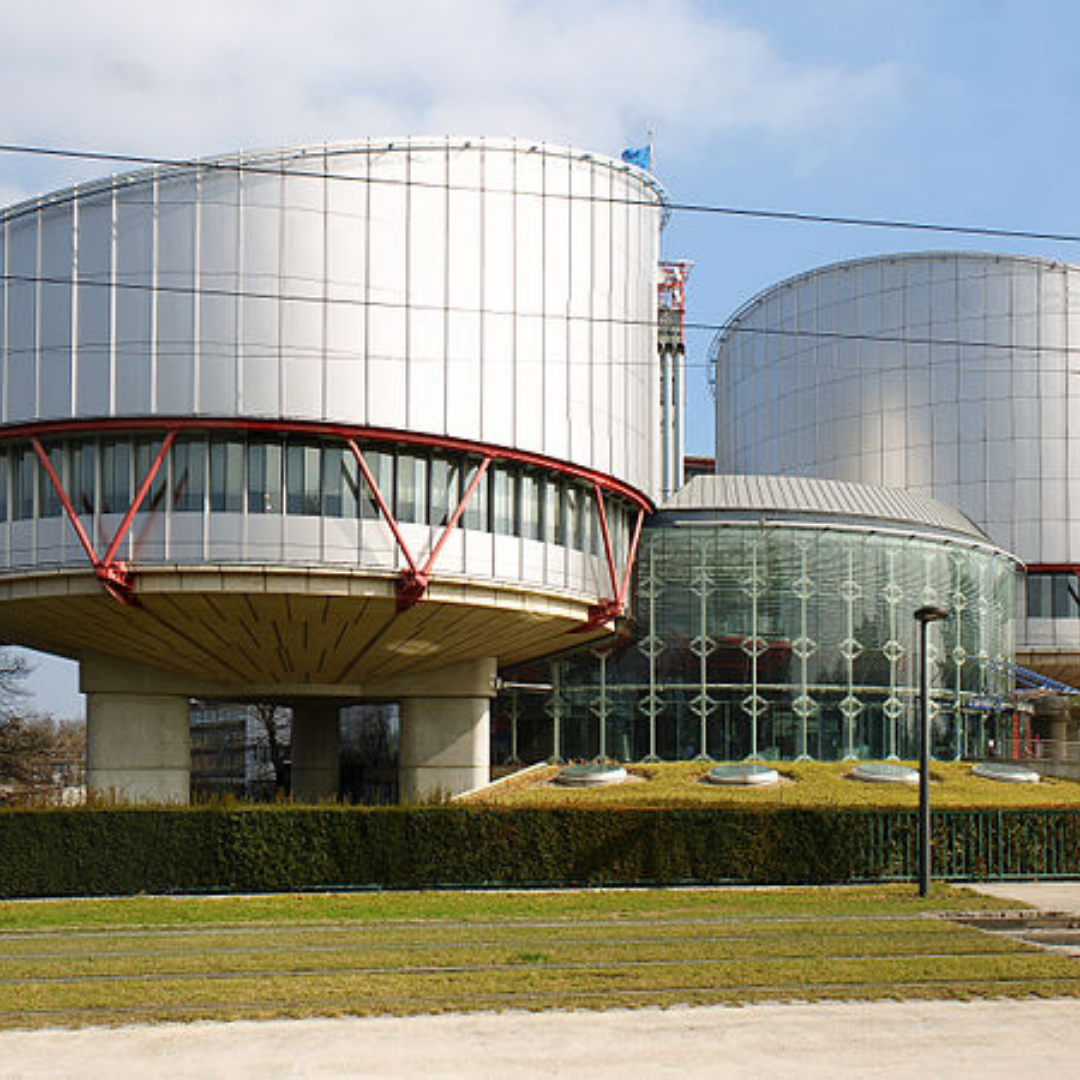
Romania has been found to be in violation of the European Convention on Human Rights because its authorities present transgender people with an impossible dilemma.
LGBTI rights organisations, ILGA-Europe and Transgender Europe (TGEU) have welcomed today’s judgment in the cases of X and Y v Romania, the European Court of Human Rights (ECtHR) found a violation of Article 8 of the European Convention, in that Romania lacked a clear and foreseeable legal framework for the legal gender recognition. The Court’s judgment was informed by a third-party intervention submitted jointly by ILGA-Europe and TGEU.
The applicants in the case, Mr. X and Mr. Y, spent years in the national courts requesting the authorisation for gender reassignment from female to male and an administrative change of forename and personal digital identity code, and other necessary changes in the civil-status register indicating the applicant’s new forename and male gender. The relevant administrative corrections were refused on the grounds that persons making such requests had to provide proof that they had undergone gender reassignment surgery.
While Applicant X was able to obtain male forenames by deed poll in the UK in 2015, he continued suffering constant inconvenience owing to the mismatch between the female identifiers on the papers issued by the Romanian authorities and the male identifiers on the various documents he had obtained in the United Kingdom. While waiting for a decision from the European Court, Applicant Y felt compelled to undergo various surgeries in order to be able to make the necessary alterations to his civil-status records and have a new birth certificate issued.
The ECtHR observed that the lack of procedure and unreasonable requirements by the national courts had presented both applicants with an impossible dilemma: either they were forced to undergo the surgery, contrary to their right to respect for their physical integrity, or they had to forego recognition of their gender identity, which also came within the scope of respect for private life.
ECtHR finding
The Court found a violation of ECHR Article 8 in that Romania lacked a clear and foreseeable legal framework for legal gender recognition. The Court recalled recommendations by the Committee of Ministers and the Parliamentary Assembly of the Council of Europe, as well as the United Nations High Commissioner for Human Rights and the UN Independent Expert on SOGI calling on States to adopt procedures allowing persons to have their name and gender changed on official documents in a quick, transparent and accessible manner.
The Court also found that the State failed to provide fair balance between the general interest and the individual interests of the persons concerned.
Unfortunately, the Court did not address Article 14 claims on non-discrimination based on gender identity that affects the applicants, and thus did not clearly condemn any surgery requirements in legal gender recognition procedures as discriminatory.
Romania’s ACCEPT association estimates that around 120,000 transgender people live in the country, while less than 50 have managed to change their civil status documents in the last 20 years.
According Patrick Br?ila, co-president of ACCEPT: “Gender identity is an inner feeling and a deeply private one, which must be ascertained by the civil status authority on the basis of the trans person’s statement, without being required to provide medical evidence, the testimonies of others, or worse, to be forced to undergo surgery on the genitals that the person in question either does not want or that are impossible to have in our country, due to the absence of specialists in the field. These interventions cost over €50,000 in foreign countries. We therefore request the Government of Romania, which has the obligation to implement this decision, to develop in collaboration with the ACCEPT Association and the transgender community in Romania, a simplified administrative procedure that allows the modification of identity documents of trans persons, respecting their dignity and personal autonomy and their right to self-determination.”
Welcoming the judgement, Antonella Lerca, member of the TGEU Board said: “Transgender people in Romania are very excited about the news from the European Court of Human Rights. We have been waiting for a long time to hear this, particularly those at the margins. Trans sex workers, poor and homeless trans people, have been rejected by society and been trampled on by the State. We call upon the Romanian state to respect its obligations and immediately introduce a legal gender recognition procedure that is quick, transparent, and accessible and based on self-determination.”
Head of Litigation at ILGA-Europe, Arpi Avetisyan added: “We welcome this judgment as it reiterates the need for establishment of a clear legal framework for the legal gender recognition without any requirements violating the right to privacy and bodily integrity in Council of Europe Member States. Putting trans people in a dilemma of choosing between having their physical integrity respected or having their gender identity recognised is unacceptable. The Court took note of declining number of Member States requiring gender reassignment surgery as a prerequisite for legal gender recognition. It is time that countries across Europe set in place legal gender recognition procedures in line with international human rights standards.”
Further information:
- Find out more about the judgement.
- Find here our intervention.
- Find out more about ILGA-Europe’s strategic litigation work.
- Find out more about Romania in our Rainbow Map
For media requests, please contact Ana Muñoz: ana@ilga-europe.org,
Call for Contributions: Violence and discrimination against LBTI women in sport submission to Council of Europe
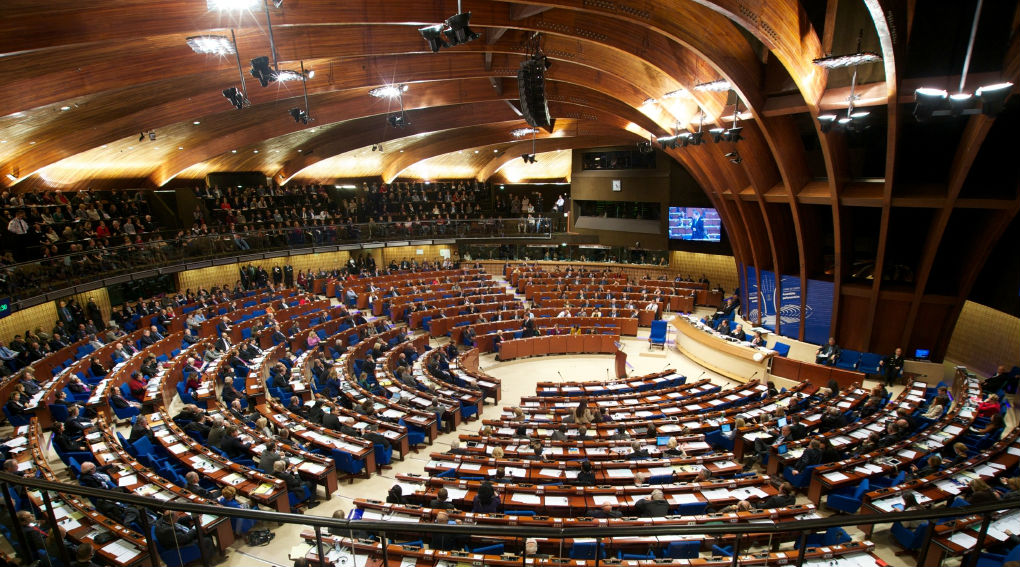
We, along with EL*C, TGEU, and OII Europe, are working to prepare a short submission to The Parliamentary Assembly of the Council of Europe on the specific needs and struggles of LBTI women in sports, and are looking for your inputs to this submission by 31 January.
The Parliamentary Assembly of the Council of Europe has been drawing attention to gender-based violence and discrimination for many years. The Assembly is now working on a report titled “The fight for a level playing field – ending discrimination against women in the world of sport”, which will result in a resolution to be adopted by the Assembly in 2021.
We are working to prepare a short submission on the specific needs and struggles of LBTI women in sports, and are looking for inputs to this submission
Inputs can be:
- focused at the local, regional, or national level, or presenting a full Council of Europe perspective
- focused on LBTI women as a whole or on specific groups within the LBTI communities
The format for submissions is informal, and can include individual testimonies, statistical data, or descriptions of situations and practices affecting these communities.
Inputs are due by 31 January 2021.
The questions on your email address and inclusion of reference to you or your organisation in the survey are mandatory; all other questions may be skipped if you choose.
Trans Day of Remembrance 2020: Honoring the 350 lives cut short this year
Every November 20, on Trans Day of Remembrance (TDoR), we remember those whose lives have been taken away through transphobic violence. This year’s Trans Murder Monitoring report from Transgender Europe shows the highest number of annual killings since the report was first published 12 years ago.
Trans Day of Remembrance was founded in 1999 and it is the day when we remember trans and gender-diverse people whose lives have been cut short. According to Trans Murder Monitoring by Transgender Europe (TGEU), 350 people have been killed since November 2019, a rise of 6% since last year’s 331. Furthermore, the report shows an alarming and deeply worrying gradual increase per year between 2008 and 2020.
Because the number of unreported cases is unknown, this is only part of the story. What we know is that, globally, almost all the victims were trans women or trans feminine people. Over six in ten were sex workers, 38% of the murders took place on the street, and 22% were killed their own homes. In Europe, half of the victims were migrants.
People, not numbers
This is not just data and figures; these are real, vital, living people who had their lives taken away, people who like you had hopes and dreams, friends, family and people who cared for them. People like Valera, a housekeeper beaten to death in Chelyabinsk, Russia. Or Jessyca Sarmiento, a 38 year-old sex worker who was deliberately run-over by a car in Paris, France. Or 26 year-old Essi Granlund, stabbed to death in a killing that was described by the police as “an argument between two men.”
According to the report, 11 trans people were killed in Europe. You can find out who these people were here.
“Trans women often feel the disgust and misogyny of society, especially when we first transition,” Dinah de Riquet Bons and Sabrina Sanchez, board members of the International Committee on the Rights of Sex Workers in Europe (ICRSE), wrote for ILGA-Europe’s blog last year. “Our bodies and behaviour dismantle binarism, rejecting the patriarchal privilege given to those bodies born with a penis. Embracing femininity makes us disposable; it sends us to the lowest rung on the societal ladder. We lose status, family, friends, communities, work, and possibilities to study. The most affected are those of us who have to struggle with intersectional racist discrimination because of our ethnic diversity.”
Exacerbated circumstances
The COVID-19 pandemic has impacted us all, but especially those who were already vulnerable, and sex workers in particular. Growing racism and police brutality are also putting trans lives at greater risk, especially those of black and migrant women of colour, sex workers, young people and the economically disadvantaged. Our Rainbow Europe Map 2020 showed that only 16 countries in Europe and Central Asia have implemented hate crime law that expressly includes gender identity as an aggravating factor. This year, North Macedonia was the only country to extend protection from hate crime, after amending its Criminal Code to add sexual orientation and gender identity grounds.
3664 trans and gender-diverse people have been murdered worldwide between 2008 and 2020. We cannot lower that number but we can certainly do more to prevent it from increasing in the future. It begins with understanding that all lives are equally valuable, and that many trans lives are vulnerable. It begins with education. It begins with our societies taking responsibility for the protection and valuing of all lives, including the lives of vulnerable trans people.
A.H. and Others v Germany
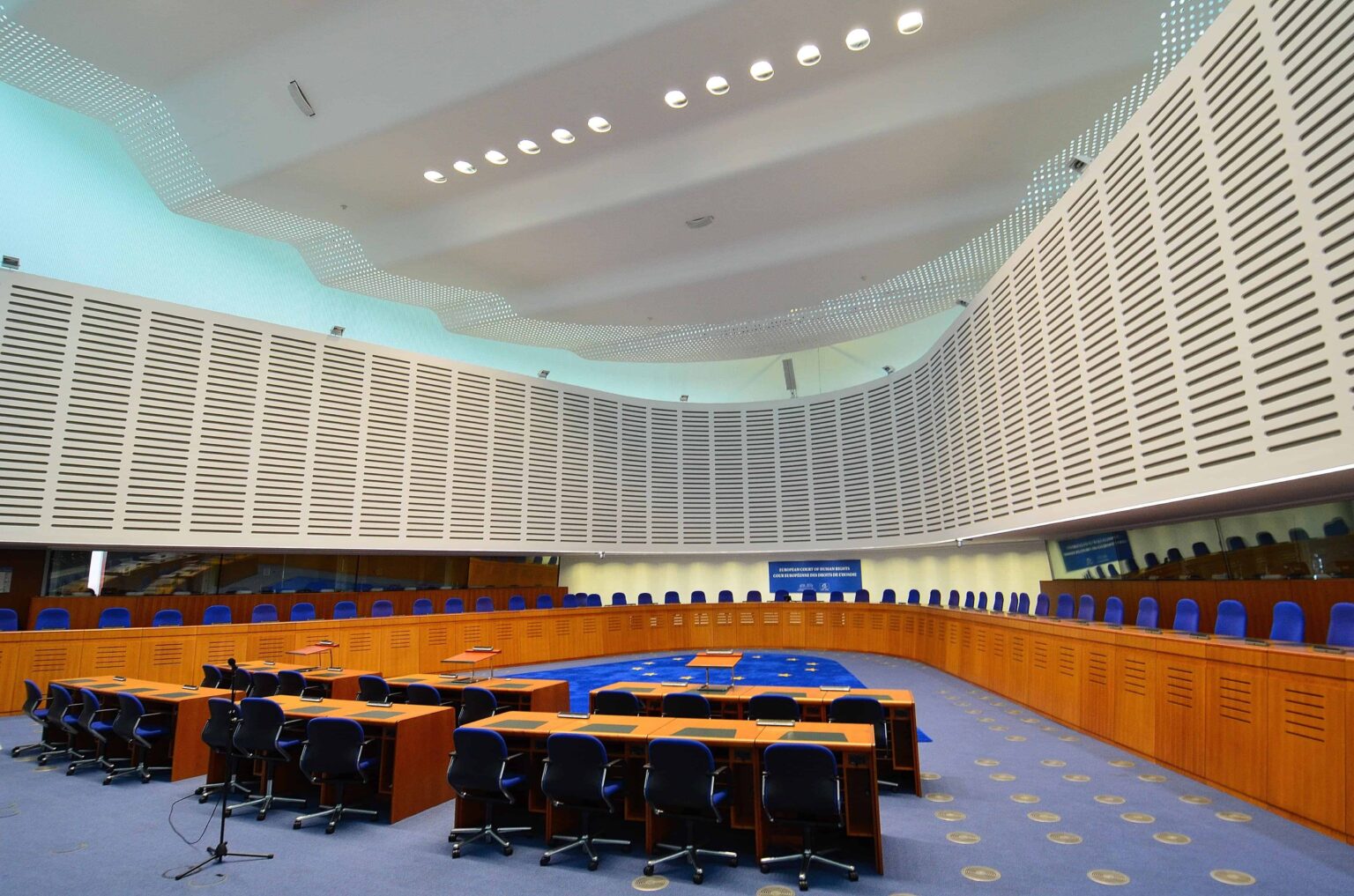
Recognition of trans parenthood.
Submitted jointly by ILGA-Europe, TGEU, and Bundesverband Trans*.
Find here the communicated case.
The Court made its decision on 4 April 2023, which found that it is within the State’s discretion to list a trans parent on their child’s birth certificate using a “deadname” and sex assigned at birth.
ILGA-Europe, TGEU and Transvanilla welcome landmark judgement from the European Court of Human Rights recognising the right of refugees to legal gender recognition

In the judgement Rana v. Hungary delivered today, the European Court of Human Rights (ECHR) held that Hungary had breached its obligation to protect the right to private life under Article 8 of the Convention by rejecting the application of an Iranian transgender refugee to have his name and sex marker changed officially.
The judgement is even more significant because it arrives two months after the Hungarian Parliament approved a bill, replacing “sex” on the civil registry with “sex assigned at birth”, which effectively bans legal gender recognition in the country.
Back in 2017, when the case was introduced before the ECHR, it was possible to change one’s documents on the basis of an informal practice. However, the applicant’s request to have his name and sex marker officially changed was rejected because he did not have a Hungarian birth certificate.
The Hungarian Constitutional Court and the European Court of Human Rights noted that there was a legislative gap excluding all lawfully settled non-Hungarian citizens from accessing the procedures regardless of their circumstances, and that this gap “disproportionately restricted their right to human dignity”.
In the case at stake, the national authorities failed to consider the fact the applicant had been granted refugee status precisely because he had been persecuted on the grounds of his gender identity in Iran.
Importantly, not only did the Court recall the State’s positive obligation under Article 8 to secure the right to respect for private life, by providing a procedure allowing to have one’s gender identity legally recognised it also clarified that such an obligation extends to all lawfully settled non-national citizens.
Welcoming the judgement, Senior Litigation Officer with ILGA-Europe Arpi Avetisyan said: “This is an important and symbolic judgment – for the first time the Court confirms the right to legal gender recognition of refugees, and taking note of the right to human dignity as underscored by the Hungarian Constitutional Court. Significantly, it also reiterates States obligations to have procedures in place allowing recognition of gender identity and name change for trans people in general. We call on Hungarian government to implement the judgment swiftly and bring necessary changes”
TGEU Policy Officer Jonas Hamm added: “This judgement sends a strong message to one of the most marginalised groups within the European trans community but also European stakeholders. It confirms that trans rights are indeed human rights and trans refugees enjoy the same protection under the European Convention for Human Rights as everybody else. In times like these, this is a strong signal of hope to our most vulnerable members.”
“This judgement is timely for the European trans community and reassures what the Court had previously made clear: legal gender recognition has to be possible in states,” said Barnabás Hidasi, President of Transvanilla. “Now the court confirmed it has to be accessible also for refugees. 23 other applicants launched cases against Hungary with the help of Transvanilla in 2017 and in 2019. They are all Hungarian citizens whose LGR cases were delayed or not processed by authorities. We trust the Hungarian government will introduce a recognition procedure again in compliance with today’s decision.”
Further information:
- Find out more about the situation for trans and intersex people in Hungary.
- Find out more about ILGA-Europe’s strategic litigation work.
- Find out more about TGEU legal work.
- Find out more about Transvanilla’s current actions on legal gender recognition
- Read the full judgement.
- Read the joint third-party intervention of TGEU, ILGA Europe and Transvanilla Transgender Association submitted to the Court in October 2017.
For media requests to ILGA-Europe, TGEU and Transvanilla on this issue, please contact Ana Muñoz: ana@ilga-europe.org, +32 493 35 60 55
Joint statement calling on the Parliament of Kazakhstan to protect trans people’s rights to health and legal gender recognition
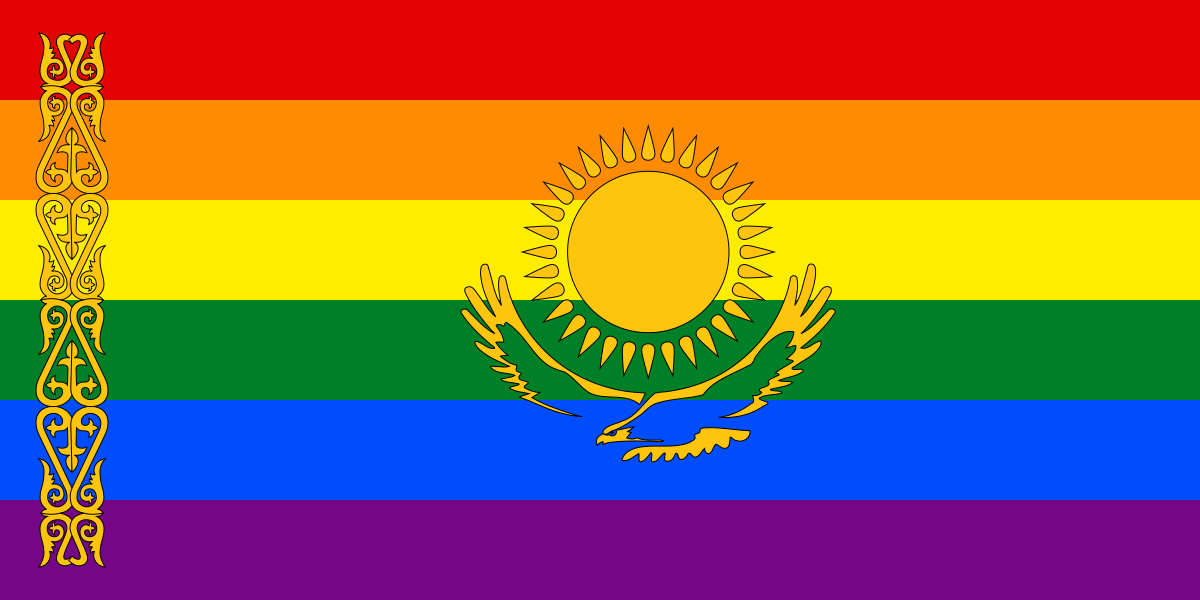
TGEU, ILGA-Europe, and IGLYO, the three largest networks of LGBTI and trans organisations working in Europe and Central Asia, are calling on the Parliament of Kazakhstan to remove the age limit from their proposed amendment No. 539 to the draft “Code on the health of the people and the healthcare system”.
The proposed amendment will make it impossible for trans people between the ages of 18 and 21 and trans people with “behavioural disorders” of all ages to exercise their right to legal gender recognition and other fundamental human rights set out in international human rights treaties ratified by Kazakhstan.
Member of Majilis, the Parliament of Kazakhstan, Zauresh Amanzholova proposed the Amendment No. 539 to Article 156 “Change of sex” in the draft “Code on the health of the people and the healthcare system.” The proposed amendment will increase the existing age limit from 18 to 21. This amendment is against the main principle of equal protection of the law and equality before the law guaranteed by Article 14 of the Constitution of Kazakhstan. The proposed change leads to the discrimination of the group of Kazakhstani citizens based on their identity as it singles out trans people in recognition of their legal age by the state. In addition, the amendment was introduced by the Majilis after the second Parliamentary hearing, leaving no opportunity for public consultation of interested parties as guaranteed by the laws “On public services” and “On access to information”.
We regret that civil society and expert organisations have not been involved in this process so far.
Amendment No. 539 will also limit trans young people’s access to trans-specific healthcare. This amendment goes against the right to health protection recognised by Article 18 of the Constitution of Kazakhstan. The real-life impact of not being able to socially and/or medically transition is enormous. Denying access to medical care to trans people between 18 and 21 is overt discrimination on the grounds of gender identity, as well as on the basis of age. In addition, it goes against the right to the enjoyment of the highest attainable standard of physical and mental health, and the principle of non-discrimination, as envisaged in the WHO Constitution and the Universal Declaration of Human Rights. The trans community must be legally protected against the existing discrimination, and not further marginalised by the authorities.
We condemn this action by the Parliament of Kazakhstan and call for a revision of Article 156 that considers civil society and expert organisation’s views!
Following the requests of the local trans community, we call upon the Parliament of Kazakhstan to:
- Withdraw age restriction and “behavioural disorder” restriction;
- Revise the terms used in the draft Code such as the “sex change” and “persons with sexual identity disorder and replace them with “gender-affirming care” and “persons with gender incongruence” respectively, in line with ICD-11, Kazakhstani legislation, and international standards;
- Increase support to the trans community with legal protections in terms of healthcare and legal gender recognition without discrimination.
TGEU, ILGA-Europe, and IGLYO call on the Parliament of Kazakhstan to review Article 156 as soon as possible. Further, we call on international human rights actors to raise awareness of this issue and support the human rights of trans people in Kazakhstan.
Hungary rolls back legal protections, puts trans and intersex people at risk
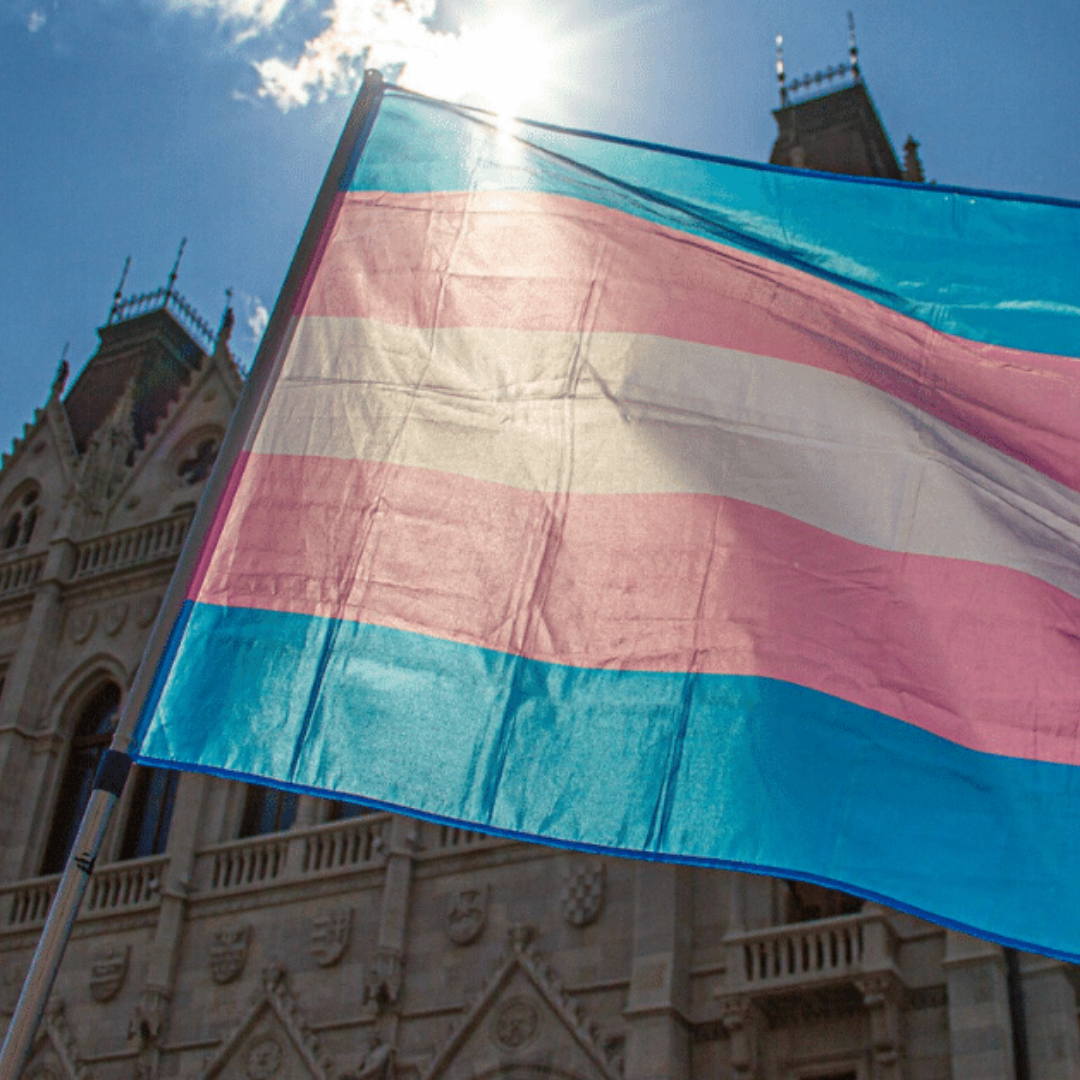
TGEU, ILGA-Europe, IGLYO, and OII Europe condemn decision of Hungarian Parliament to follow the government and restrict access to fundamental rights for trans and intersex people.
On 19 May 2020, following weeks of international outcry, the Hungarian Parliament voted 133 in favour, 57 opposed, to approve an omnibus bill, one article of which replaces the category of “sex” on the civil registry with one of “sex assigned at birth”.
The article within the omnibus bill, Article 33, amends the civil registry document, which is used as the basis for all legal identity documents for Hungarian citizens. Replacing the changeable characteristic of “sex” with an immutable one, “sex assigned at birth”, in practice Hungary has made legal gender recognition, the process by which trans and intersex people can bring their documents into alignment with their gender identity, impossible.
Before the proposal of this omnibus bill, the situation was bleak for trans and intersex Hungarians. According to the Second LGBTI Survey of the Fundamental Rights Agency, published last week, 76% of trans Hungarians believe that the Hungarian government “definitely does not effectively combat prejudice and intolerance against LGBTI people”, compared to an EU-28 average of only 38%. Additionally, 84% of trans respondents in Hungary reported that the main reason for increasing prejudice, intolerance, or violence in the country was “Negative stance and discourse by politicians and/or political parties”.
The international response was significant, with thousands of posts using the hashtag #drop33, referring to the specific article of the bill, as well as statements from the Council of Europe Commissioner for Human Rights, the European Parliament, the United Nations Special Procedures, and many more
Katrin Hugendubel, Advocacy Director for ILGA-Europe, said: “Legal gender recognition is the bedrock of access to equality and non-discrimination for trans and intersex people. Without it, these populations are subject to immense stigma, discrimination, harassment, and violence every time they use their identity documents – be it at the bank, when going to the doctor, when applying for a job, or even when applying for a cell phone contract.”
Dan Christian Ghattas, Executive Director of OII Europe, continues: “Intersex people can also need access to legal gender recognition, and are subject to discrimination and stigma when that is not possible. According to the FRA Survey, 21% of intersex Hungarians believe that barriers to legal gender recognition are their biggest obstacle.”
The European Court of Human Rights has consistently and clearly asserted that legal gender recognition falls within the right to private and family life in the European legal framework, specifically protected by Article 8 of the European Convention on Human Rights. ECtHR jurisprudence indicates that the personal characteristic of “sex” is one that, so long as it is publicly recorded by States, should be possible to change to protect the human rights of trans and intersex people to private and family life, to health, to found a family and marry, and to recognition before the law.
“We are dismayed by this decision to roll back established rights,” says Masen Davis, Interim Executive Director of Transgender Europe. “Trans and intersex Hungarians, as all people in Hungary, should have their human rights equally protected and without discrimination.”
For comment, contact: Ana Muñoz Padrós, ILGA-Europe: ana@ilga-europe.org, +32 493 35 60 55
Response to Hungarian Prime Minister Viktor Orbán regarding to Article 33 of the proposed Omnibus Bill, 2020

In response to Hungarian Prime Minister Viktor Orbán letter dated 5 May 2020, regarding to Article 33 of the proposed Omnibus Bill, 2020.
Dear Prime Minister Orbán,
Dear Deputy Secretary Schaller-Baross,
We write today to respond to your letter, dated 5 May 2020, to our organisations, of The European Region of the International Lesbian, Gay, Bisexual, Transgender and Intersex Association (ILGA-Europe), Organization Intersex International Europe (OII Europe), the regional umbrella organisation for intersex-led organisations in Europe, with members in more than 20 countries, and Transgender Europe (TGEU), in regards to Article 33 of the proposed omnibus bill of 2020, regarding reformulating the national registry to change the mutable category of “sex” to an immutable category of “sex at birth”.
As previously noted, we, along with our members in Hungary, strongly oppose the proposed amendment to the national registry, such that it will effectively make legal gender recognition for trans and intersex people impossible in Hungary, which contravenes EU and international human rights law and violates the well-established right to private and family life for trans and intersex Hungarians. Our previous letter, dated 24 April 2020, outlined the broad consensus among international human rights actors to this end.
We write today to address specific issues raised in your reply letter which are cause for concern. Firstly, we wish to address your reference to “a long-standing uncertainty in the interpretation of the law”. There is a clear understanding in European and international human rights law contexts that the mutable personal characteristic of “sex” is one that, so long as it is publicly recorded by States, should be possible to change to protect the human rights of trans and intersex people to private and family life, to health, to found a family and marry, and to recognition before the law.1 2 3 4 Legal gender recognition, the process by which one changes one’s sex marker in legal documents to reflect one’s gender identity, is clearly established in long-standing jurisprudence from the European Court of Human Rights,5 particularly when it comes to the fundamental right protected under Articles 8 and 12 of the European Convention of Human Rights.6 Replacing a mutable identity marker with an immutable one does not clarify an uncertainty in jurisprudence, but rather acts in direct contradiction of the Court to make legal gender recognition impossible, avoiding the State responsibility to protect and promote fundamental rights, in fact directly violating those fundamental rights. With this Article, Hungary will make protection of the fundamental human rights of its trans and intersex citizens impossible in practice and in law. Curtailment of fundamental rights cannot be the best available solution for addressing a legal “uncertainty”.
Additionally, in your reply letter, you assert that Article 33 of the omnibus bill in no way prevents individuals from “living according to his or her own identity and self-determination”. Unfortunately, this assertion is false. As is well-documented,7 8 access to legal gender recognition for trans and intersex people is intertwined with the protection of many of their human rights. Because the civil register is directly connected to all available identity documents in Hungary, this change not only fixes the sex marker in the registry, but in all other subordinate documents. This means in practice that trans and intersex people will be forced to live with documents that do not align with their gender identity and expression throughout their lifetimes, exposing them to increased discrimination, stigma, harassment, and violence, as well as to disparities in access to the rights to health, housing, education, employment, and to access goods and services without discrimination, as enshrined in the values of the European Union and the Council of Europe.
As ILGA-Europe, OII Europe and TGEU, we reaffirm our call on the Hungarian government to heed your responsibilities under the international human rights law framework, to engage in good faith reforms designed to protect the human rights of all Hungarian citizens including trans and intersex people, and thus to amend the omnibus bill to remove Article 33 prior to a vote in the full Parliament.
Kind regards,
Katrin Hugendubel
Advocacy Director, ILGA-Europe
1. e.g. Recommendation CM/Rec(2010)5 of the Committee of Ministers to member states on measures to combat discrimination on grounds of sexual orientation or gender identity, available from: https://search.coe.int/cm/Pages/result_details.aspx?ObjectID= 09000016805cf40a.
2. Parliamentary Assembly of the Council of Europe Resolution 2048 (2015), ‘Discrimination against trans people in Europe’.
3. Commissioner for Human Rights of the Council of Europe, Human Rights and Gender Identity (29 July 2009) CommDH/ IssuePaper(2009), available from: https://rm.coe.int/16806da753.
4. G v Australia, Communication No. 2172/2012 (CCPR/C/119/D/2172/2012) (UN HRC, 15 June 2017).
5. B v France [1993] 16 EHRR 1.
6. Goodwin v United Kingdom [2002] 35 EHRR 18.
7. Grant v United Kingdom [2006] ECHR 548.
8. Report of the Independent Expert on protection against violence and discrimination based on sexual orientation and gender identity (11 May 2018) UN Doc No. A/HRC/38/43.
What have happened?
– On 31 March, Trans Day of Visibility, the Hungarian government released a large bill consisting of many legislative proposals – one of these, Article 33, would make legal gender recognition impossible, massively curtailing the rights of trans and intersex citizens of Hungary.
– On 6 April, ILGA-Europe and TGEU released a statement calling on the Hungarian Parliament and the Parliament to drop Article 33 of a legislative omnibus bill.
– On 27 April, ILGA-Europe, OII-Europe, and TGEU sent a joint letter to Hungarian Prime Minister Viktor Orbán.- On 15 May, ILGA-Europe, OII-Europe, and TGEU sent a joint response to Hungarian Prime Minister Viktor Orbán’s letter.
– On 2 April, 22 Hungarian human rights and LGBT NGOs released a statement.
– On 2 April, the Council of Europe’s Commissioner for Human Rights shared a statement.
– On 14 April, the UN Independent Expert on protection against violence and discrimination based on sexual orientation and gender identity; the Special Rapporteur on the right of everyone to the enjoyment of the highest attainable standard of physical and mental health; the Special Rapporteur on the right to privacy and the Special Rapporteur on violence against women, its causes and consequences sent a letter to Hungarian government.
– On 20 April, the European Professional Association for Transgender Health (EPATH) and European Society for Sexual Medicine (ESSM), released a statement.
– On 15 April, 63 Members of the European Parliament sent a letter to Hungarian government.
– On 17 April, the Hungarian Psychological Association released a statement.
– On 17 April, the European Parliament passed a resolution.
– On 17 April, the UN High Commissioner on Human Rights referred explicitly to the bill as bad practice.- Transvanilla Association and All Out has collected over 24,000 signatures for a petition against the Article 33.
– You can SUPPORT the #Drop 33 campaign on Twitter, Instagram, or TikTok.- A vote in Parliament is expected on 19 May.
Letter to Hungarian Prime Minister Viktor Orbán: in regards to Article 33 of the proposed Omnibus Bill, 2020
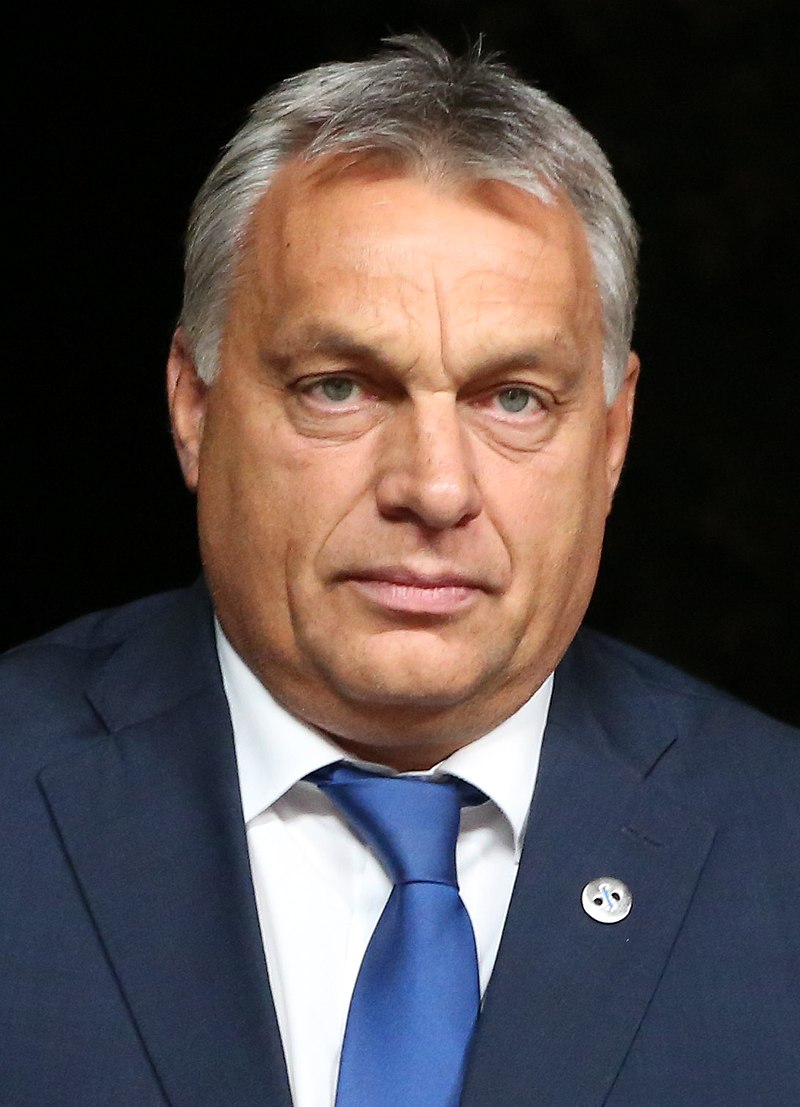
In our continued call for the Hungarian government to stop the attack on legal gender recognition, we have sent a joint letter with OII-Europe and TGEU. In the letter, we list the international calls to #Drop33 of a legislative omnibus bill–which would deny access to legal gender recognition in the country–including from the COE Commissioner for Human Rights and an admonition from the UN High Commissioner for Human Rights.
Dear Prime Minister Orbán,
This letter, on behalf of The European Region of the International Lesbian, Gay, Bisexual, Transgender and Intersex Association (ILGA-Europe), a regional non-governmental organisation focused on the rights of LGBTI people with over 600 members in 54 countries in Europe and Central Asia, Organization Intersex International Europe (OII Europe), the regional umbrella organisation for intersex-led organisations in Europe, with members in more than 20 countries, and Transgender Europe (TGEU), a member-based oragnisation for the trans community in Europe and Central Asia with 140 member organisations in 44 countries, brings to your attention the response to Article 33 of the proposed omnibus bill of 2020, regarding reformulating the national registry to change the mutable category of “sex” to an immutable category of “sex at birth”.
We, along with our members in Hungary, strongly opposed the proposed amendment to the national registry, such that it will effectively make legal gender recognition for trans and intersex people impossible in Hungary, which contravenes EU and international human rights law and violates the well-established right to private and family life for trans and intersex Hungarians.
We write to bring to your attention the clear and strong call of many international human rights organs and actors in opposition to this measure. You will note that there have been objections published by:
- 22 Hungarian human rights and LGBT NGOs,
- the Hungarian Psychological Association,
- the Council of Europe’s Commissioner for Human Rights,
- 63 Members of the European Parliament,
- the European Parliament as a whole,
- the UN Independent Expert on protection against violence and discrimination based on sexual orientation and gender identity; the Special Rapporteur on the right of everyone to the enjoyment of the highest attainable standard of physical and mental health; the Special Rapporteur on the right to privacy and the Special Rapporteur on violence against women, its causes and consequences,
- the European Professional Association for Transgender Health (EPATH) and European Society for Sexual Medicine (ESSM), and
- the UN High Commissioner on Human Rights, which refers explicitly to the bill as bad practice. Additionally, a petition against the Article has collected over 22,000 signatures as of the writing of this letter.
As ILGA-Europe, OII Europe and TGEU, we call on you to heed your responsibilities under the international human rights law framework, and to amend the omnibus bill to remove Article 33 prior to a vote in the full Parliament.
Kind regards,
Katrin Hugendubel
Advocacy Director, ILGA-Europe
What have happened?
– On 31 March, Trans Day of Visibility, the Hungarian government released a large bill consisting of many legislative proposals – one of these, Article 33, would make legal gender recognition impossible, massively curtailing the rights of trans and intersex citizens of Hungary.
– On 6 April, ILGA-Europe and TGEU released a statement calling on the Hungarian Parliament and the Parliament to drop Article 33 of a legislative omnibus bill.
– On 27 April, ILGA-Europe, OII-Europe, and TGEU sent a joint letter to Hungarian Prime Minister Viktor Orbán.- On 15 May, ILGA-Europe, OII-Europe, and TGEU sent a joint response to Hungarian Prime Minister Viktor Orbán’s letter.
– On 2 April, 22 Hungarian human rights and LGBT NGOs released a statement.
– On 2 April, the Council of Europe’s Commissioner for Human Rights shared a statement.
– On 14 April, the UN Independent Expert on protection against violence and discrimination based on sexual orientation and gender identity; the Special Rapporteur on the right of everyone to the enjoyment of the highest attainable standard of physical and mental health; the Special Rapporteur on the right to privacy and the Special Rapporteur on violence against women, its causes and consequences sent a letter to Hungarian government.
– On 20 April, the European Professional Association for Transgender Health (EPATH) and European Society for Sexual Medicine (ESSM), released a statement.
– On 15 April, 63 Members of the European Parliament sent a letter to Hungarian government.
– On 17 April, the Hungarian Psychological Association released a statement.
– On 17 April, the European Parliament passed a resolution.
– On 17 April, the UN High Commissioner on Human Rights referred explicitly to the bill as bad practice.- Transvanilla Association and All Out has collected over 24,000 signatures for a petition against the Article 33.
– You can SUPPORT the #Drop 33 campaign on Twitter, Instagram, or TikTok.- A vote in Parliament is expected on 19 May.
Kyrgyzstan court protects trans woman’s right to privacy

A court in Kyrgyzstan has found in favour of a trans woman after a TV channel illegally filmed her and broadcast the footage, ordering compensation for damage to her morale.
A trans woman has won a lawsuit against Iliazbek Baltashev from Kyrgyzstan’s New TV station, after she was filmed without her consent and the video was broadcast and then shared on social media, putting her in danger.
In October 2018, the woman, who identifies herself as Lola, was in the passenger seat of a car being driven by a friend in the northern part of the Kyrgyz Republic’s capital, Bishkek, when they were stopped by police at an intersection. The traffic officers were not alone; Iliazbek Baltashev, a journalist from New TV was there too collecting material for the show ‘Patrol,’ in which drivers breaking the rules are exposed.
Lola was not the driver but a video featuring her as the protagonist went out on the TV show and later on the channel’s social media platforms. The driver accused of breaking the traffic rules did not appear much in the video. Lola and the driver asked the video operator numerous times not to film them.
Baltashev shared the video on Instagram, Facebook and the New TV YouTube channel with the slogan, “Hey stop! What the h***?” It sparked a large, aggressive online reaction to Lola’s identity, including calls for the annihilation of the LGBT community. Lola and the driver approached the New TV company asking for the video to be deleted from their social media, saying it could threaten their safety and lives, but the channel did not respond.
Following the broadcasting and publication of the video, Lola was recognised and pointed at on the street. She became afraid of leaving her apartment, but then was evicted by her landlord. She experienced tremendous anxiety and constant headaches, eventually developing a chronic kidney disease.
She approached the Crisis Centre ‘Shans’ and was provided with psychological counselling and support. There she was advised to approach the law enforcement for further support.
Bishkek’s district court recognised the filming, publishing and dissemination of the video featuring Lola as illegal. New TV has been told to delete it from its channel and its social media, as well as the comments and reactions it generated.
The journalist and the channel have also been ordered to compensate Lola by the sum of 10,000 Kyrgyzstani soms (129 euros) for the moral damage they inflicted, and 700 soms (nine euros) for court expenses. Lola originally sought 1,000,000 soms (12,910 euros) compensation.
She also made a complaint against the traffic police officers involved in the incident, but has not yet received any reply.
Says Björn van Roozendaal, Programmes Director for ILGA-Europe: “We welcome this court ruling in favour of a trans woman activist in Kyrgyzstan. We believe that the court ruling will be helpful for the Kyrgyz judicial practice in responding to similar cases in the future.”
Monumental shift in global health for trans and gender diverse people

Today, after nearly a decade of efforts from trans and gender diverse activists and organisations, and their allies, the World Health Assembly approved the newest update to the International Classification of Diseases (11th Revision; ICD-11), which depsychopathologises (i.e. removes assertions of mental disease or disorder) trans and gender diverse people1).
Micah Grzywnowicz, Co-Chair of the Executive Board of ILGA-Europe, says, “ICD-11 represents a monumental shift in the global health for trans and gender diverse people. In previous revisions of ICD from the time that trans-related diagnoses were added in 1965 (8th Revision), these diagnoses were listed as either ‘Sexual deviations’ or ‘Mental and behavioural disorders’. The 11th revision accomplishes several steps at once, including the depsychopathologisation of trans and gender diverse identities.”
Firstly, the old diagnoses, predicated on the understanding that trans identities were mental disorders in themselves, have been deleted entirely. This is extremely important, as both the old category names and their corresponding content represent a history laden with struggle, oppression, forced medicalisation, stigma, and marginalisation experienced by trans and gender diverse people in the context of healthcare.
Second, a new chapter in the 11th Revision, “Conditions related to sexual health”, includes new trans-related diagnoses, as well as codes related to sexual and reproductive health. The new chapter is non-pathologising (i.e. it does not label its categories as “disorders” automatically). This new classification approach indicates a belief from the World Health Organisation that trans and gender diverse people are not inherently “disordered”, nor that their identities as such are related to their mental wellness.
Finally, the new categories, collectively “Gender incongruence”, are defined in ways that do not imply that the assignment of this category corresponds with a disease or a disorder. These new categories can only be assigned when the trans or gender diverse person themselves indicates distress with their body (also known as dysphoria) and are in need of medical interventions such as hormones, laser hair removal, or surgeries to address these feelings.
There is, however, a very long way to go on several fronts2. Most alarmingly, as Dan Christian Ghattas, Executive Director of OII Europe notes, “ICD-11 cements the pathologistion of intersex people by introducing harmful language such as ‘disorders of sex development’, incorporating supporting and explanatory materials that are associated with human rights violations, and failing to take steps to address or eliminate human rights violations against intersex people in medical settings.” See the ICD-11 press release jointly prepared by intersex organisations worldwide for more information.
Additionally, ICD-11 introduces a problematic code: “Gender incongruence in childhood”. Trans and gender diverse children who have not yet experienced the onset of puberty do not need medical interventions, but instead only love, support, information, and access to counselling. The category instead serves to pathologise gender curiousity, creativity, and exploration in children.
Finally, the global approval of ICD-11 represents just one step in a list of many, the next of which is national-level implementation of the Revision. National-level policymakers and stakeholders must work together to ensure the full implementation of the 11th Revision and full coverage of all medical procedures associated with the new categories within health insurance systems.
1. ICD-11 was announced by the WHO Executive Board in June 2018, but still needed to be ratified by the Assembly to go into force.
2. For detailed information on next steps, please refer to the work of the global coordinating group on depathologisation, hosted by GATE.
European court of Human Rights rules in favour of a trans applicant in Macedonia in LGR case
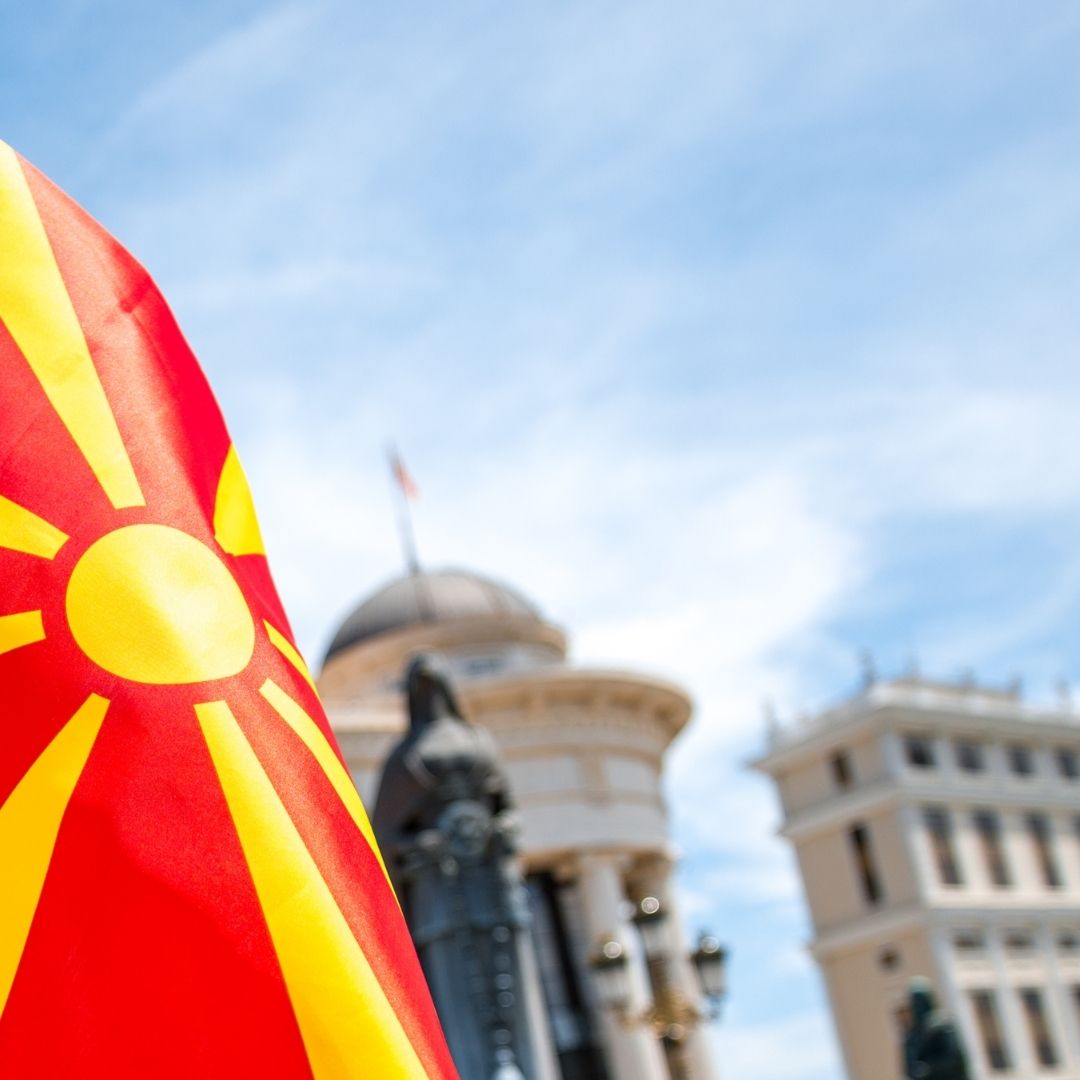
In a new judgment today, the European Court of Human Rights decided in favour of a Macedonian trans man applicant and found the violation of his right to respect for private and family life due to the absence of legislative framework and effective remedy for legal gender recognition.
Although the applicant X had gender reassignment surgeries abroad, the Ministry of Justice in Macedonia rejected his applications to alter the gender marker in the birth register. Macedonia has only name change procedure in place for their trans citizens and legal gender recognition is not possible due to the absence of legislative framework and effective remedy.
Recalling Council of Europe Committee of Ministers’ Recommendation (CM/REC (2010)5 on measures to combat discrimination on grounds of sexual orientation or gender identity, the European Court of Human Rights (ECHR) found that The Former Yugoslav Republic of Macedonia lacks “quick, transparent and accessible procedures” and these legislative gaps had left the applicant “in a situation of distressing uncertainty vis-à-vis his private life and the recognition of his identity”. Importantly, the Court referred to the applicant’s gender identity based on his self-identification.
“This judgment represents another signal from the Court that States should review their procedures on legal gender recognition with a view to simplifying them and removing abusive requirements in line with international standards” commented Constantin Cojocariu, a co-representative of the applicant. The applicant’s other co-representative Natasa Boskova also added that “Considering the ongoing process of drafting an amendment to the Civil Registry Law regarding the legal gender recognition process, we hope this judgment will accelerate the process of the new law in Macedonia”.
Antonio Mihajlov, President at Subversive Front, one of ILGA-Europe member organisations in the country, thinks the judgment sends a clear message to the Macedonian authorities “not only to introduce legal gender recognition, but also adopt the new Law on Protection and Prevention against Discrimination that has been in the Parliament’s procedure since May 2018.” The proposed law text explicitly protects against discrimination based on sexual orientation and gender identity.
ILGA-Europe had intervened as a third party in this case together with Transgender Europe (TGEU), Trans Network Balkan, and Subversive Front.